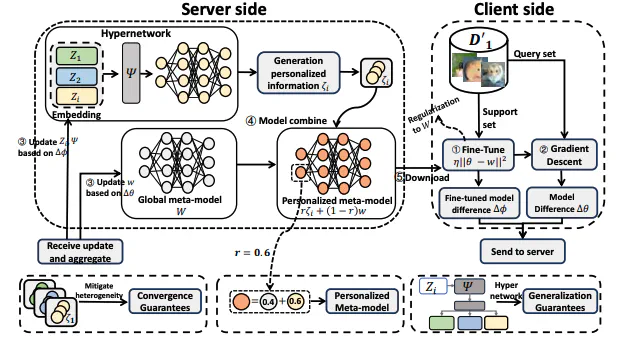Toward Personalized Federated Meta-learning with Constrained Hypernetwork on Non-IID Data
May 7, 7070·,,,,,,,·
1 min read
Lizhao Wu
Xiaoding Wang
Hui Lin
Xu Yang
Jiwu Shu
Xun Yi
Ibrahim Khalil
Albert Y. Zomaya
 Image credit: Unsplash
Image credit: UnsplashAbstract
Personalized Federated Learning (pFL) tailors models to each client’s local data distribution in heterogeneous federated learning settings. Federated Meta-learning (FML), a branch of pFL, uses meta-learning for rapid adaptation, where clients start with a meta-model and personalize it by finetuning with local data. Due to the limitations of a single global meta-model when client data distributions differ significantly, the meta-model personalization in FML should be considered. However, most benchmark pFL methods lack meta-model personalization, often lacking meta-learning or relying on a single global meta-model. Besides, these methods do not offer both meta-model personalization and assurances on generalization and convergence due to challenges in measuring meta-model to client model distance effectively in FML. To address these issues, we combine FML with hypernetwork and propose a constrained hypernetwork-based FML framework called FMLH by innovatively uses a hypernetwork to capture fine-tuned model differences, allowing personalized meta-models for each client. We provide rigorous mathematical proofs illustrating how the hypernetwork affects the convergence and generalization bounds of FMLH. Experimental results demonstrate that FMLH significantly improves the model’s generalization in cross-client shifts, with up to an 18.71% increase in lowest decile accuracy. FMLH also outperforms representative pFL algorithms by up to 5.6% in maximum accuracy improvement.
Type
My first work, which is a novel framework to solve Non-IID problem in federated learning.